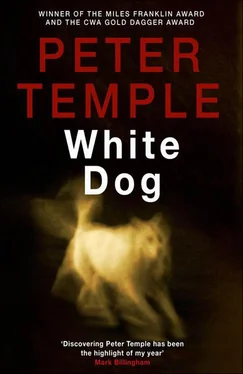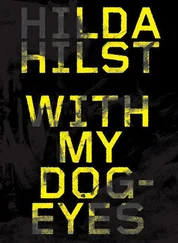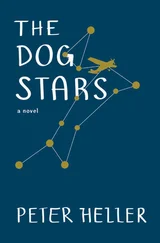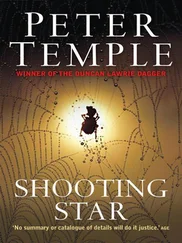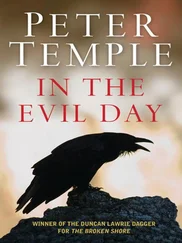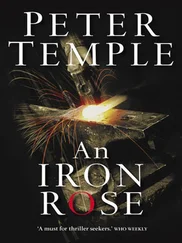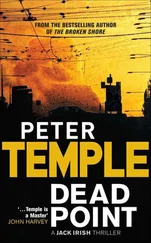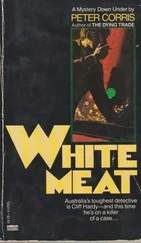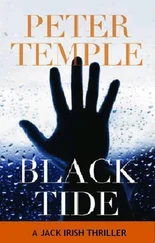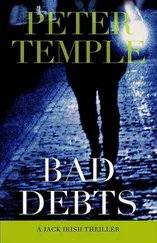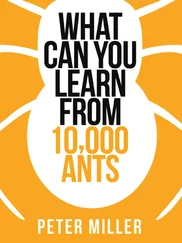Peter Temple - White Dog
Здесь есть возможность читать онлайн «Peter Temple - White Dog» весь текст электронной книги совершенно бесплатно (целиком полную версию без сокращений). В некоторых случаях можно слушать аудио, скачать через торрент в формате fb2 и присутствует краткое содержание. Жанр: Триллер, на английском языке. Описание произведения, (предисловие) а так же отзывы посетителей доступны на портале библиотеки ЛибКат.
- Название:White Dog
- Автор:
- Жанр:
- Год:неизвестен
- ISBN:нет данных
- Рейтинг книги:4 / 5. Голосов: 1
-
Избранное:Добавить в избранное
- Отзывы:
-
Ваша оценка:
- 80
- 1
- 2
- 3
- 4
- 5
White Dog: краткое содержание, описание и аннотация
Предлагаем к чтению аннотацию, описание, краткое содержание или предисловие (зависит от того, что написал сам автор книги «White Dog»). Если вы не нашли необходимую информацию о книге — напишите в комментариях, мы постараемся отыскать её.
White Dog — читать онлайн бесплатно полную книгу (весь текст) целиком
Ниже представлен текст книги, разбитый по страницам. Система сохранения места последней прочитанной страницы, позволяет с удобством читать онлайн бесплатно книгу «White Dog», без необходимости каждый раз заново искать на чём Вы остановились. Поставьте закладку, и сможете в любой момент перейти на страницу, на которой закончили чтение.
Интервал:
Закладка:
My grandmother left the room and came back with a picture in a silver frame. She put it on the mantelpiece. It was the photograph taken after the civil marriage of William John Irish and my mother. He was in a dark suit, a handsome man and large, black hair disciplined with oil, a head and more taller than my pale and lovely mother, in a cream suit herself, a neckline hinting at bosom.
Where had it been? Had my grandmother kept it hidden, in a drawer?
For Rosa, born after her Commie father was dead, her grandfather was the first male of importance. The infant knew only the Toorak house, sleeping in her mother’s nursery, in her mother’s cot, with her mother’s stuffed animals, cared for eight hours a day by her mother’s nanny. When she was a baby, the old man took her out in the grand pram on Saturdays and Sundays. I had a clear memory of him, in a tweed jacket, leaning into the big-wheeled carriage, his nose pointing, his hand causing chuckling sounds.
‘Gramps was lovely,’ Rosa once said. ‘I miss him so much. Perhaps he never had the chance to bond with you.’
I said, ‘ Bond? What do you understand by bond?’
And in asking this, I knew the rich, thin-lipped old bastard lived on: my mother had bequeathed me his genes. And I knew also that my unease about that fact matched exactly my grandfather’s feelings about the genes of a Communist stonemason in his grandson.
I fetched my supper and sat in the most uncomfortable chair because I wanted to punish myself. I drank a glass of wine, had half a bowl of soup. The soup had aged well, the bread was edible. Had the Turks ever mounted any Polar expeditions?
Tired in the moving parts. Inside too, in the core. I’d stripped the bed, I would have to make it. Not tonight. The spare room, I would sleep in my own spare room, the bed was made. A mug of Milo. No milk, no Milo. Shit.
I brushed my teeth, avoided looking in the mirror, not wanting to see myself. I switched off the heating, the lights, stood at the front window and looked out at the visible universe. Bare branches moving, headlights on the street beyond the parkland.
I was turning back the covers when I thought about putting on the answering machine. It was 9.15 pm. Someone might ring, adults weren’t supposed to be horizontal at 9.15 with the intention of sleeping.
To the sitting room, press the button on the machine, back to the bedroom. A good mattress on the bed, hard. I opened my book, got comfortable on the pillows, drowsy immediately, fought it, a few paragraphs, put the book down, switched off the light, half turned. The blessing of sleep, the laying on of oblivion.
I woke in sweat, heart thudding, dreams vivid, incoherent — fleeing in terror, heavy crippled legs, climbing sheer surfaces that crumbled, ladders with missing rungs, rungs that broke underfoot, the abyss below, pursuers close, gaining.
It was a long time before I fell asleep again, lying in the dark, needles of pain when I moved, feeling sad in the way I’d felt since waking up in hospital, a chronic sadness.
In the morning, I found the keys to the Lark and to Linda’s Alfa inside the front door, pushed through the letter slot. The cars were outside. Cam. The Cam taketh and the Cam returneth. The one person who didn’t come to see me in hospital. Instead, he sent a parcel with half a bottle of Grange Hermitage 1983 in a flat silver flask.
I liked him even more for that.
21
Time passed, a chain of forgettable and forgotten days, weeks. I fended off almost everyone who inquired, didn’t reply to most telephone messages, extinguished them. People became exasperated.
‘If you don’t get back to some semblance of your former self,’ Linda said from London one morning, ‘I’m coming back and I’m taking stern measures. Arse-kicking I’m talking about.’
I had no rejoinder.
I went to Charlie’s on most days, made myself do that. With no heart in it, I worked at tasks he gave me to do. He didn’t say anything about my absence, carried on as always, lectured me on accurate measuring, the need to tune tools after every use, the virtues of a slow and humiliating apprenticeship in the trade, the wisdom of certain European thinkers. Sometimes after my run I went back to bed, sleeping fitfully, not getting up until midday, sleeping badly that night, the old dreams back, the unconnected images: my father coming towards me down a passage, picking me up, raising me above his head, my mother crying, holding me tightly to her in a doorway, car lights gleaming on wet bluestone gutters.
I woke earlier and earlier and, as the body pains lessened, the runs got longer and longer. I didn’t go to the Prince much. I caught people frowning at me, exchanging glances. People told me jokes. Everyone seemed to want to cheer me up.
In mid-June, I read a bank statement, the first time in months. There was a deposit of $50,000 about which I knew nothing. I rang the bank. The money was an electronic transfer from a Luxembourg bank called CreditInternat.
The hospital bill? It had been paid, said Rosa. I hadn’t thought about it again. I rang the hospital accounts department. Paid by electronic deposit from CreditInternat.
The next day, I ran through the dawn streets as far as once-lovely Royal Park, ran down to the tramlines, turned and angled across the expanse, through the clumps of grass and the scrubby native trees. The splendid parkland was now ruined, courtesy of a government falling for some vague pencil sketches produced by mystical landscape designers in the 1980s. Soon they would find bodies here.
I ran home, showered, dressed, and, without calling, drove up to Macedon. When I’d parked outside the garages and got out, I stood on the raked gravel for a few moments. A day in its final quarter, winter stillness. Clean, cold air, the perfume of woodsmoke and leafmould and regret.
I was on the second terrace of the stone path when the front door opened, inhabitants warned by a sensor at the gates, no doubt. A woman in jeans and a poloneck sweater. She had blondish hair to just below her ears, parted at the left. I didn’t need to be told who she was. Sophie. I could see Sir Colin Longmore in her — the chin, the forehead. But she had Sarah’s build, tall and whip-thin, the long neck.
‘Jack,’ she said.
‘How do you know?’
She pointed at the forecourt. ‘My father. You’ve been on the security camera.’
We shook hands.
‘Leaving messages on your machine doesn’t work,’ she said. A direct gaze, disconcerting, no automatic smile.
‘I’ve gone off answering machines for the moment,’ I said.
‘I can understand that,’ she said. ‘Come in.’
She led me down a long, broad, unadorned passage, through a room with no clear function, into a sitting room, not large, a sisal carpet, rugs on it. Sir Colin got up from a severe wooden chair. He was in an old grey jumper and corduroys, shoeless, long blue bootsocks pulled up over his trousers. It gave him a pixie-like look.
‘Jack,’ he said, his hand out. ‘Bit thin but you’re vertical, that’s the ticket.’
‘I wanted to ask about the paying of my hospital bill and a deposit in my bank account,’ I said.
Sir Colin looked at his daughter, a sliver of a look, looked back at me.
‘I’m sorry?’ he said, his eyebrows now not on the same plane, the left higher than the right. ‘Are you demanding money?’
I turned and left the grand house, found my own way out. No one came after me. The front door closed with the sound I remembered from the second-last door at Pentridge Prison, the Stone College, in the old days, when I had a respectable job, did what I could for people who generally found themselves where they were because life hadn’t opened up before them like a flower. Early on, it hit them in the face like a big fist.
Читать дальшеИнтервал:
Закладка:
Похожие книги на «White Dog»
Представляем Вашему вниманию похожие книги на «White Dog» списком для выбора. Мы отобрали схожую по названию и смыслу литературу в надежде предоставить читателям больше вариантов отыскать новые, интересные, ещё непрочитанные произведения.
Обсуждение, отзывы о книге «White Dog» и просто собственные мнения читателей. Оставьте ваши комментарии, напишите, что Вы думаете о произведении, его смысле или главных героях. Укажите что конкретно понравилось, а что нет, и почему Вы так считаете.
